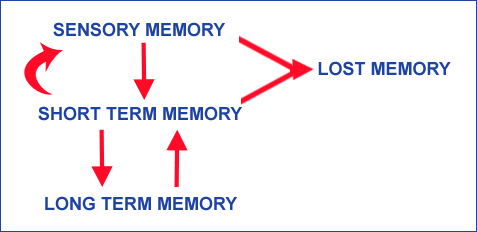Memory loss or Amnesia is an unusual forgetfulness of the short term or long term memory. Memory loss is preventable.
'The existence of forgetting has never been proved: We only know that some things don't come to mind when we want them'.
~ Friedrich Nietzsche
A fading or impaired memory is often the consequence of ageing. It is heartening to know that this condition is preventable. Like any other muscle in our body, the brain stays fit with use. Age is no limit for strengtheningone’s the memory of brain.
Some scientists in the United States seem to agree with Friedrich Nietzsche , as indicated by current studies that are suggestive of reversing the memory loss due to Alzheimer’s disease or other degenerative brain diseases.
The Memory
The brain is one of the vital organs of our body. One of its key functions is to weave memories. Memory is the ability to retain information or experiences and retrieve them when needed. Memory can involve any of the five human senses - smell, taste, touch, vision or sound. The memory center of the brain is called 'the hippocampus'. Using intricate methods multiple neurons, within the hippocampus, process the memories.
Memory classified as short-term and long-term memory. Every sense acts as a stimulus and gets stored in the sensory memory. They are then transferred to the short-term memory. Further processing causes the brain to store or forget the experience. Short-term memory lasts only for about 20-30 seconds. Any memory longer than 30 seconds can be termed as long-term memory. Long-term memories can even last a lifetime.

Memory Loss
Causes of memory loss
• Aging
• Insomnia
• Sleep Apnea
• Diseases of the brain such as Alzheimer’s disease, Dementia, Brain Tumor, Seizures, Stroke or Cerebro-vascular damage.
• Neurodegenerative illness
• Infections of the brain such as Herpes Encephalitis, HIV, Syphilis, Tuberculosis
• Trauma involving direct head injury or Brain surgery
• Drugs such as Anesthetics, Barbiturates, Benzodiazepines
• Alcohol
• Emotional Disturbances
• Vitamin B deficiency
• Thyroid dysfunction
• Genetic factors, such as 'Apolipoprotein E-4 allele' were recently reported to increase the risk for Alzheimer’s disease.
While memory loss due to aging may be a slow process and may not affect long-term memories, Alzheimer can cause devastating changes in life. Sometimes, amnesia can progressively get worse. Immediate medical advice is required when the memory losses disturb everyday living.
Preventing or Reversing Memory Impairment
Some causes of memory loss are treatable, while others are not. Prevention is key. Life style changes recommended for regular healthy living can be applied to brain health too.
Exercise
Routine daily exercise not only helps to keep the body fit and toned, but can enhance brain function and delay the process of aging. This is done by promoting blood circulation and and providing sufficient oxygen supply to the brain . Metabolic diseases that can be a cause for memory loss can be prevented with exercise.Avoid Smoking
Every pack of cigarette has the warning – 'Smoking is injurious to health'. Nicotine in cigarettes is known to constrict the blood vessels. Smoking is a risk factor for lung cancer, stroke, hypertension, heart attack and many other blood vessel related diseases. Well conditioned lungs and heart are required to supply enough oxygen to the brain to preserve memories.
Balanced diet
Fruits and vegetables have a lot of antioxidants that can slow down the aging process. Saturated fat and trans fat produces free radicals that can harm the blood vessels. Eating a well balanced meal with low fat, more vegetables and whole grains is beneficial to prevent memory loss.
Sleep
Six to eight hours of a sleep every night is not only beneficial to retain general health, but also to strengthen memories.
Keep your brain active
Constantly challenging your brain with a new hobby, language learning, etc can thwart brain cells’ deterioration. Games such as chess, cross word puzzles, rubik’s cube, scrabble or sudoku keeps the brain active and helps memory retention.
Vitamins
There have been various researches suggestive of Vitamin C and Vitamin E to neutralize the free radicals. They can to some extent preserve brain tissues and cognitive skills. Studies have shown fewer incidences of Dementia and Alzheimer’s in people taking vitamin supplements everyday.
Be Socially active
In older people, social associations increase self confidence and support. This improves a person’s mental performance.
Stress Reduction
Chronic exposure to stress hormones has undesirable effects on the hippocampus. Anxiety and depression can be a result of too much stress that often interferes with normal memory processing.
Making life style choices that are healthy and harmonious will certainly help to promote a healthy mind in a healthy body. So start today- to go a long long way!
Source-Medindia
PMA/M







